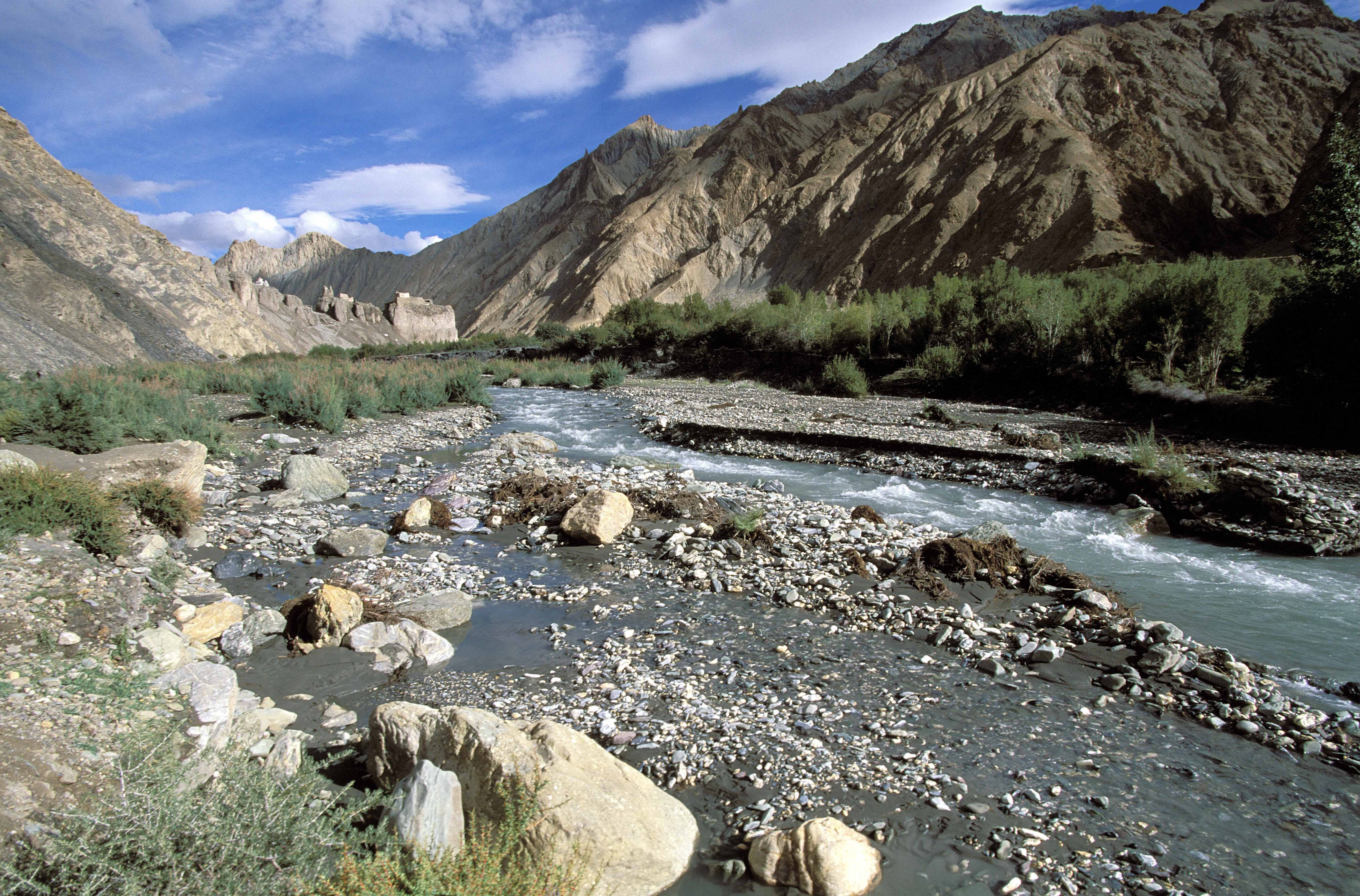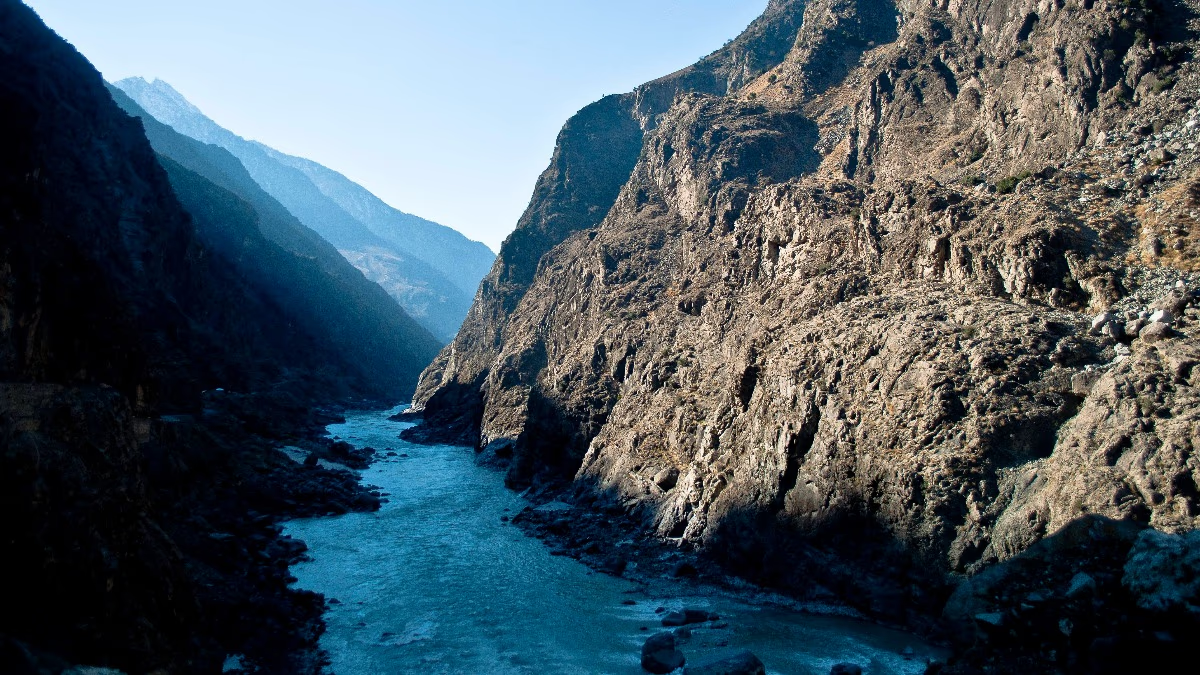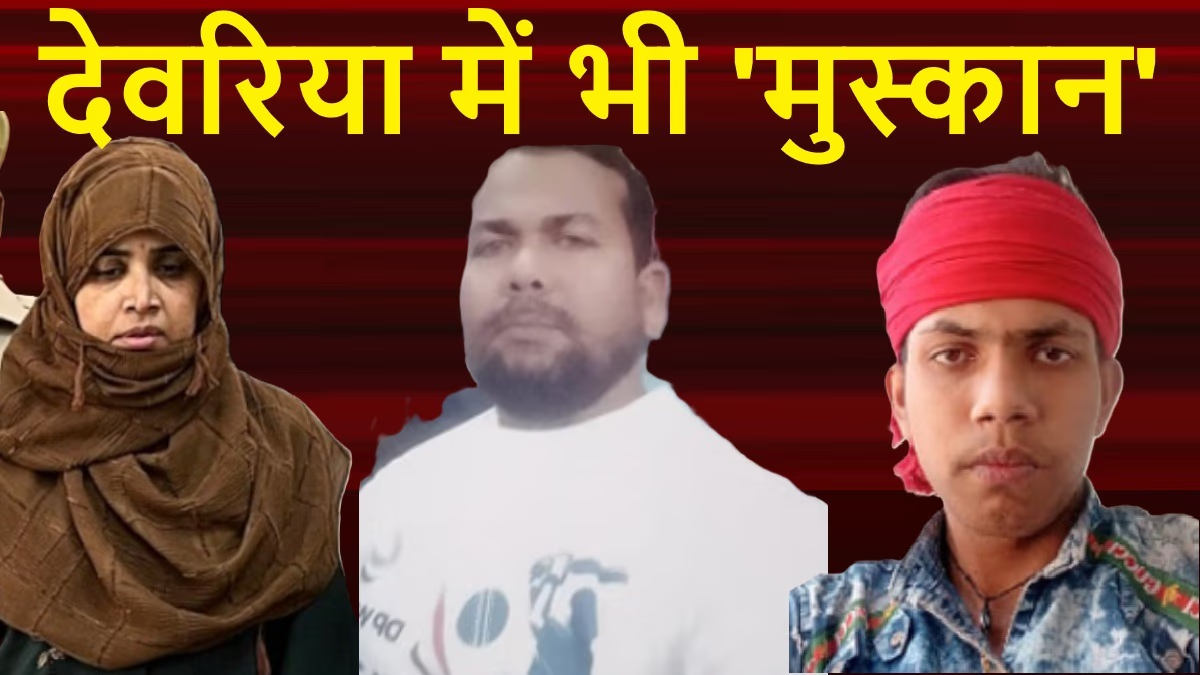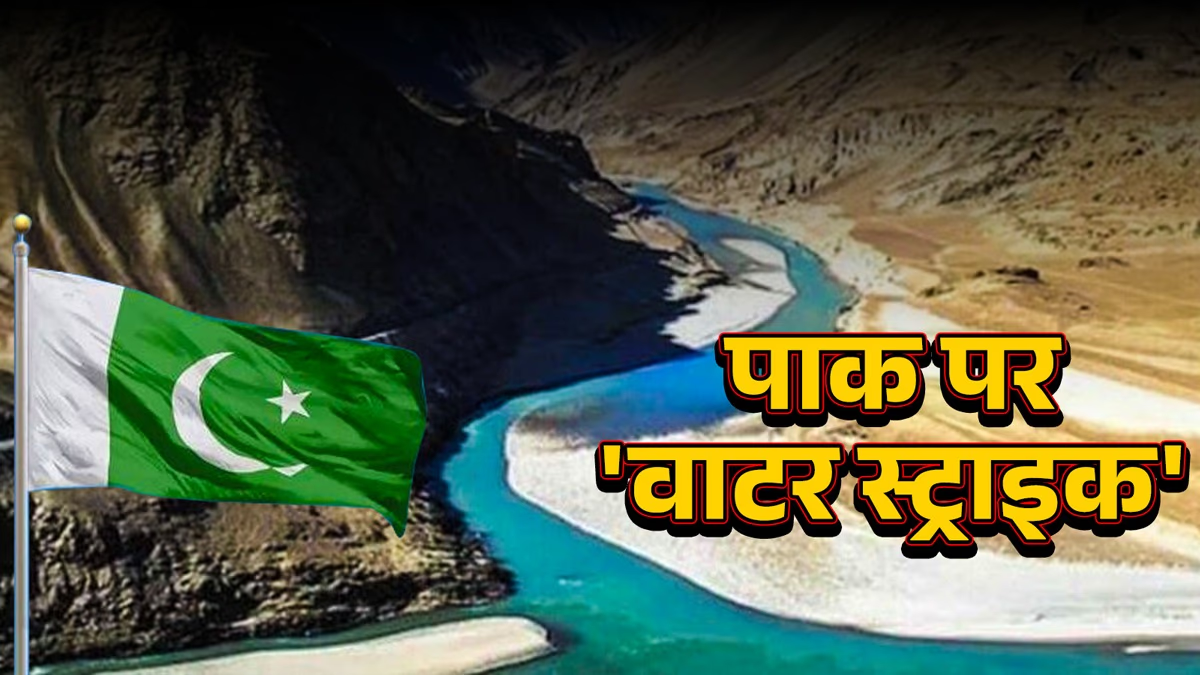If the jugular is compressed, it can cause serious health complications as this vein carries blood from the head and brain to the heart. An injury here can even be fatal. Yet, Pakistan's political doctors repeatedly make mistakes that compel India to clamp down on Pakistan's water lifelines.
In their frequent speeches, Pakistani leaders and generals describe Kashmir as Pakistan's jugular vein. Following the murder of 26 innocent tourists by Pakistan-backed terrorists in Pahalgam, India has tightened its grip on this lifeline.
The water flowing through Kashmir, which Pakistan claims as its lifeline, sustains the country. The Indus, Chenab, and Jhelum waters the Pakistanis drink, and the crops they grow are nourished by the treaties granting India rights over three rivers, Beas, Ravi, and Sutlej. These rivers originate from Tibet's Mansarovar Lake, Himachal's Lahaul Spiti, and emerge from the Rohtang Pass, thriving in Jammu & Kashmir and Punjab before entering Pakistan and eventually merging with the sea.
Geographically these rivers are under India's control. Post-Pahalgam attack, linked to Pakistan, India has squeezed Pakistan's jugular vein, temporarily suspending the 1960 Indus Water Treaty. In the aftermath, Pakistan, battling 40-degree heat, finds solace evaporating.
Pakistan's ministers make bold statements, security experts lament the Indus Water Treaty and the UN, recalling the haunting days of Balakot.

Source: aajtak
Punjab government minister Ajma Bukhari warned of serious repercussions for India while labeling the cowardly Pahalgam attack a conspiracy by India, emphasizing severe aftermath for any misadventures by India.
Facing a $1 billion debt, Punjab's minister declared they would respond effectively to India on all fronts, as they had previously.
Notably, post-independence, Pakistan has engaged in three or four wars with India, losing every time.
Former Minister Chaudhry Fawad Hussain lamented international law violations. He posted on X, asserting India cannot unilaterally suspend the treaty, as this would severely affect Punjab and Sindh's poor farmers.
According to Geo News, former Pakistan High Commissioner to India, Abdul Basit, stated that the Indus Water Treaty cannot be suspended or terminated unilaterally.
Assuring Pakistanis under the shadow of potential Indian action, Abdul Basit suggested readiness for any Indian moves.
Former ambassador and PPP Senator Sherry Rehman emphasized treaties cannot be suspended or terminated unilaterally, critiquing India for allegedly orchestrating the Pahalgam attack.
Former Senator Mushahid Hussain Syed shared similar views, accusing India of using the Pahalgam incident as a pretext to pressure Pakistan.
He asserted that the Indus Water Treaty is a bilateral international agreement between Islamabad and New Delhi, warning that halting water would breach international laws and equate to 'an act of war.'
Mushahid Hussain Syed stressed the need for Pakistan to inform the UN Secretary-General against India. He reassured citizens of readiness to counter India aggressively.
While Pakistani leaders label India's action as war-like, security experts reminisce about Balakot.
Defense expert Brigadier (Retired) Ahmed Saeed Minhas threatened on Geo News that India showed restraint in 2019 by safely returning pilot Capt. Abhinandan, warning this time would be different.
Another security expert, Brigadier (Retired) Rashid Wali, recalled Balakot, accusing India of indulging in 'propaganda' right after the attack, debunking Indian media claims and warning of actions sparking tensions akin to Balakot.
Commenting on India's allegations, national security expert Syed Muhammad Ali questioned the Pahalgam attack's legitimacy, absurdly calling it an Indian conspiracy.
He alleged India maligns Islam and Pakistan, diverting attention from domestic issues.
Syed Muhammad Ali suggested India seeks to reduce international pressure in trade relations, particularly with the U.S.
Former Senator Mushahid Hussain Syed termed it an 'Automated response' by the Indian Government.
Notably, post-Pahalgam attack, India suspended the Indus Water Treaty with Pakistan from 1960.
In the wake of India's actions post-Pahalgam, chaos engulfs Pakistan as it readies for a missile test. Meanwhile, PM Shehbaz Sharif convened a National Security Committee meeting to discuss the latest developments.
Pakistan's Deputy Prime Minister and Foreign Minister Ishaq Dar, on a private television channel, criticized India's perspective, describing it as 'immature' and 'hasty,' accusing India of lacking evidence. Dar noted, 'India displayed no maturity in its reaction,' labeling India's escalation as unserious.




